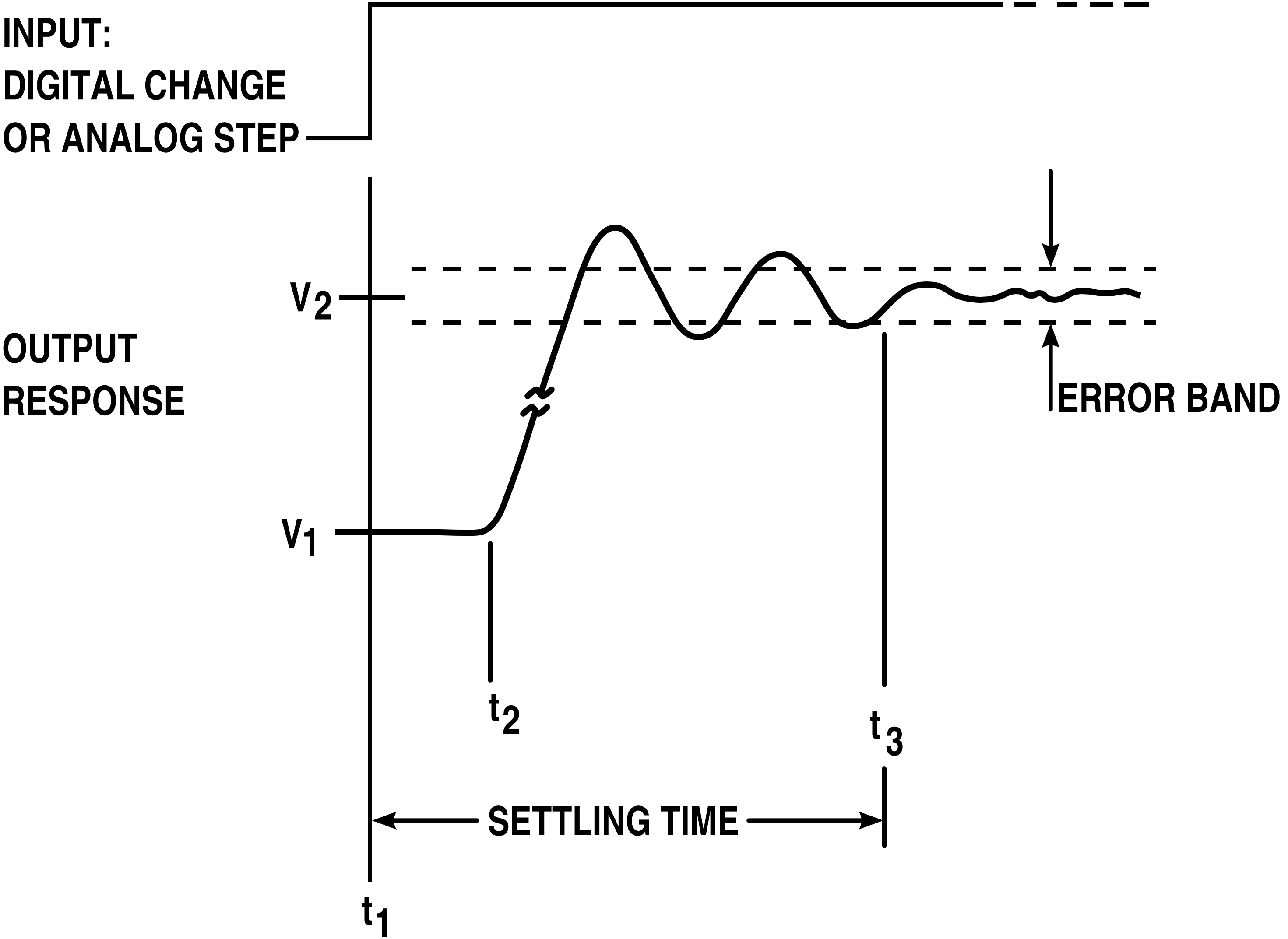settling time on:
[Wikipedia]
[Google]
[Amazon]
 In
In
Second-Order System Example
Op Amp Settling Time
of Settling time and Risetime
for computing settling time, rise time, and other step response characteristics
Settling Time Calculator
Transient response characteristics Systems theory
 In
In control theory
Control theory is a field of control engineering and applied mathematics that deals with the control system, control of dynamical systems in engineered processes and machines. The objective is to develop a model or algorithm governing the applic ...
the settling time of a dynamical system
In mathematics, a dynamical system is a system in which a Function (mathematics), function describes the time dependence of a Point (geometry), point in an ambient space, such as in a parametric curve. Examples include the mathematical models ...
such as an amplifier
An amplifier, electronic amplifier or (informally) amp is an electronic device that can increase the magnitude of a signal (a time-varying voltage or current). It is a two-port electronic circuit that uses electric power from a power su ...
or other output device is the time elapsed from the application of an ideal instantaneous step input to the time at which the amplifier output has entered and remained within a specified error band.
Settling time includes a propagation delay
Propagation delay is the time duration taken for a signal to reach its destination, for example in the electromagnetic field, a wire, speed of sound, gas, fluid or seismic wave, solid body.
Physics
* An electromagnetic wave travelling through ...
, plus the time required for the output to slew to the vicinity of the final value, recover from the overload condition associated with slew, and finally settle to within the specified error.
Systems with energy storage cannot respond instantaneously and will exhibit transient responses when they are subjected to inputs or disturbances.
Definition
Tay, Mareels and Moore (1998) defined settling time as "the time required for the response curve to reach and stay within a range of certain percentage (usually 5% or 2%) of the final value."Mathematical detail
Settling time depends on the system response andnatural frequency
Natural frequency, measured in terms of '' eigenfrequency'', is the rate at which an oscillatory system tends to oscillate in the absence of disturbance. A foundational example pertains to simple harmonic oscillators, such as an idealized spring ...
.
The settling time for a second order, underdamped system responding to a step response can be approximated if the damping ratio by
A general form is
Thus, if the damping ratio , settling time to within 2% = 0.02 is:
See also
*Rise time
In electronics, when describing a voltage or current step function, rise time is the time taken by a signal to change from a specified low value to a specified high value. These values may be expressed as ratiosSee for example , and . or, equiva ...
* Time constant
In physics and engineering, the time constant, usually denoted by the Greek language, Greek letter (tau), is the parameter characterizing the response to a step input of a first-order, LTI system theory, linear time-invariant (LTI) system.Concre ...
References
External links
{{Wikisource, High accuracy settling time measurements, has=a paper on settling time measurements, nocat=yesSecond-Order System Example
Op Amp Settling Time
of Settling time and Risetime
for computing settling time, rise time, and other step response characteristics
Settling Time Calculator
Transient response characteristics Systems theory